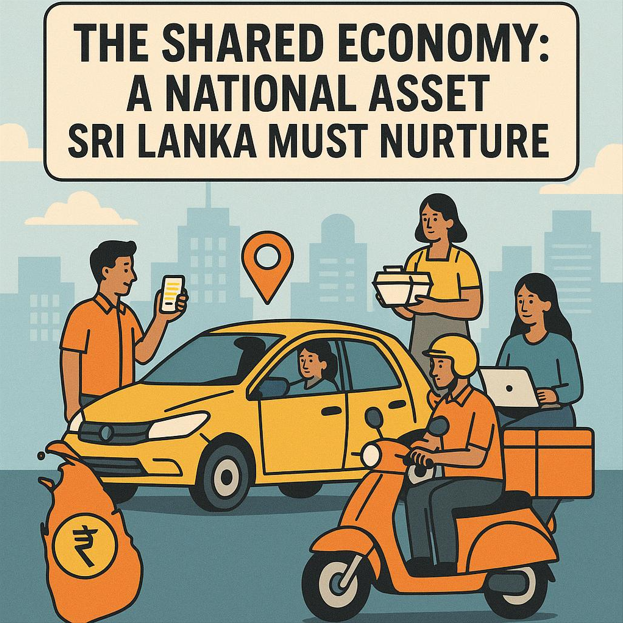The shared economy is often misunderstood, dismissed as little more than ride-hailing or food delivery. In truth, it is emerging as one of the most powerful engines of Sri Lanka’s economic resilience. At a time when traditional industries falter and foreign exchange reserves remain fragile, the shared economy represents an ecosystem that empowers individuals, keeps value circulating within our borders, and reflects the very fabric of Sri Lankan society.
PickMe: A Local Model with Global Relevance
Unlike foreign-owned platforms that parachute into markets and siphon profits offshore, PickMe is a homegrown company rooted in Sri Lankan culture and grounded in the realities of its people. It operates with a vision that goes beyond profit, cultivating a network that stretches across the island — not just the most lucrative urban pockets.
- Empowering Drivers: PickMe has built support systems for its driver network, treating them with dignity and protection even though they are not formal employees. This includes safety protocols and welfare measures that recognize the driver community as partners, not just service providers.
- Nationwide Reach: While global competitors selectively focus on profitable areas, PickMe serves the entire country. This inclusivity strengthens rural-urban connectivity and ensures the shared economy touches every Sri Lankan, not just the metropolitan elite.
- Keeping Value Local: Every rupee earned by PickMe remains within Sri Lanka’s economy. By contrast, a simple Kothu bought through a foreign app is ultimately paid for in dollars — draining scarce foreign exchange reserves. In today’s economic climate, this distinction is critical.
A Sustainable Economic Path
The shared economy is no longer peripheral. In Sri Lanka, it is becoming a parallel economy that rivals traditional industries in scale and significance. It provides opportunities at the bottom of the pyramid, connects them with middle- and upper-income groups, and fosters entrepreneurship through dark kitchens, logistics, and delivery services.
In doing so, it creates a self-sustaining rupee-based ecosystem, one that reduces our dependence on imports and foreign capital. The multiplier effect of keeping value onshore cannot be overstated: every transaction fuels local consumption, creates jobs, and generates tax revenue.
Addressing the Grey Zones
It is true that the shared economy comes with challenges. Global platforms often operate in grey regulatory areas — from data governance to features that undermine law enforcement, such as real-time alerts of police checkpoints. These are not merely technical issues but ethical and legal concerns that demand scrutiny.
By contrast, PickMe’s local grounding makes it more responsive to Sri Lanka’s regulatory, cultural, and social environment. It is precisely this kind of accountability that policymakers should reward and protect.
The Role of Policymakers and Media
If Sri Lanka is to unlock the full potential of the shared economy, policy support is vital. Lawmakers must:
1. Create a clear regulatory framework that promotes innovation while ensuring accountability.
2. Protect local platforms from being unfairly undercut by foreign operators who extract value offshore.
Recognize the shared economy as a strategic sector — not just for convenience, but for its role in foreign exchange conservation, employment, and national resilience.



